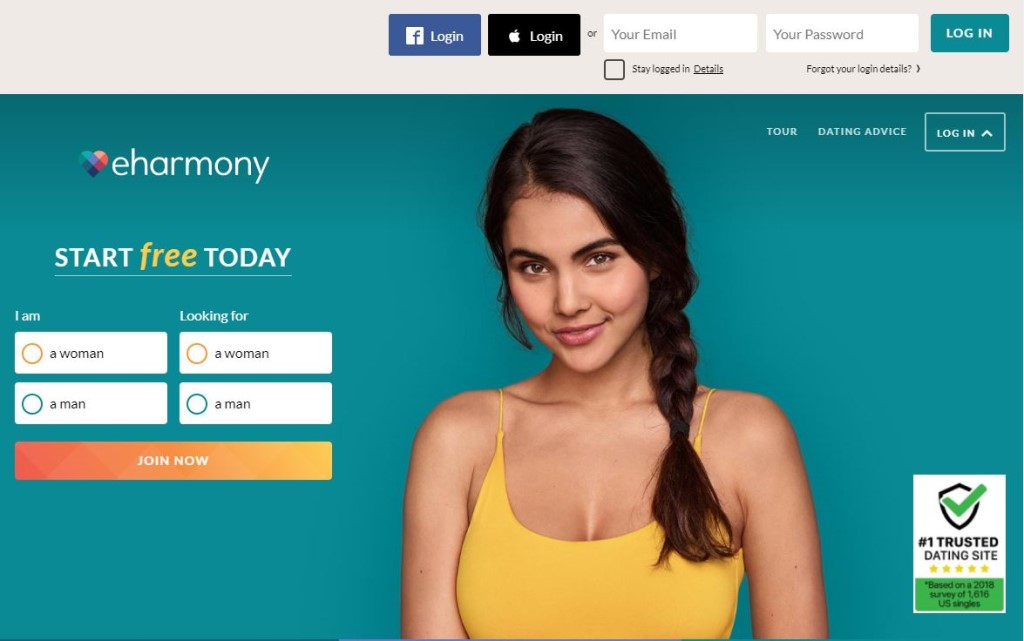December 29, 2021
The Post-Christmas Saviours of NOOM and e-Harmony are Upon Us
It’s the week after Christmas and the post-Christmas saviours are appearing on the TV.
Yes, this grey-zone week, when most of us (in mid-summer Australia anyway) can’t figure out what day it is, is the week of the post-Christmas saviour.

It’s that time in the secular liturgical calendar ‘twixt December 27th and January 1st, the week between baby Jesus being stored away and the new year being ushered in. And the advertising has moved on from being all Christmassy to being all, well, how can I put it, all “relationshippy” and “skinny”.
And it’s not subtle. The ad breaks on TV between overs in the scandalously short third Test Match between Australia and the Ross-on-Wye Second XI, were peppered with heavenly images of skinny, happy people who had managed to lose 30kgs of fat (and how you can too), and skinny happy people who had managed to gain 55-75kg of flesh in the form of a new partner (and how you can too).
Yes, dieting ads and relationships ads present us with the post-Christmas saviours that so many in our well-fed, but poorly related Western nations crave.
And like all advertising, and indeed like the Christmas story, the likes of Noom, Weight-Watchers, e-harmony and RSVP, all require a salvation narrative that offers “good news for all the fat/lonely people who inhabit fat/lonely hell. A saviour has indeed been born for you and all you need to do is to sign up. At least the Bumble dating app is more honest. When it comes to relationships in 2021, whether married or single, we’re all bumbling along.
But the general gist is this “Sign up, pay your money and then we can make this work for you”.
This time. This year. After all, there’s a reason these ads come out in a show of strength at this time of year. It’s the time of year we self-assess and determine that next year is going to be a different year.
It’s up to us to carve out our own meaning, and since in the year we just had, our quest for personal meaning was jeopardised by “too much food/too little exercise – no romantic relationship/a dud romantic relationship – a job that didn’t satisfy/no job at all” then salvation is at our fingertips in the form of these post-Christian saviours. We can pull ourselves up with our bootstraps, we just need a little help.
Look, I get it. I get to the end of a year too, and I sense the inertia of the past year in many ways. A prayer life that was shallower than it could have been; a general ennui towards so much of what should give me joy; a less attentive attitude towards my wife and children in the way of all my busy excuses. Can I bust out a better effort in 2022? And even having run 4000km in 2021, hasn’t my 54 year old body, with its ever so slight – but still so stubborn to shift – muffin tops – just let me down that little bit more than I’d like?
Like it or not, even as Christians, we are modern people living in the West, and these thoughts fill the voids and fissures between our oft-shaky faith. We swim in the waters of secular expressive individualism.
I’m enjoying Alan Noble’s new book, You Are Not Your Own: Belonging to God in an Inhuman World. Enjoying it and being challenged by it.
Yet at first glance, it is a very human world isn’t it? We’re looking to ourselves, and to others for our approvals. It’s a world in which, even if God does exist, He is a marginal, almost magical, character who gets his time in the sun (or snow, depending on which hemisphere you live in), at this time of year, before being packed away. The rest of the year, it’s up to us humans!
Noble says this about what he calls “the burden of self-justification” in a world in which we belong to ourselves and not to God:
If I am my own and belong to myself, the first and most significant implication is that I am wholly responsible for my life. This is both an exhilarating and terrifying thought. And it’s not just that I am responsible for my personal survival, for food and shelter and so on. I also need a reason to live. I need purpose and direction. I need some way to know when I am failing at life and when I am succeeding, when I am living ethically and when I am not. I must have some way of determining on my deathbed that I lived a good, full life.
Exhilarating and terrifying. And an oscillation between the two. An oscillation which results in a deep, nauseating, cultural instability. The modern West is in a constant state of flux of exhilarating possibilities and terrifying fears. No wonder, as Noble points out, “we desire ever greater heights of self-mastery and excellence, or ever more entertainment and pleasure (or both)”. He observes that we live between the great heights of belonging to the “Affirming” crowd, and the great lows of belonging to the “Resigned” crowd. We switch on (Affirming) when we’re doing well, and switch off (Resigned), when we’re not. So much for 2021. Launder, rinse, repeat for 2022!
Noble’s point, of course, is that we are not our own and that we belong – as the Heidelberg Catechism’s first question asserts – to God:
Q.
What is your only comfort
in life and death?
A.
That I am not my own,
but belong with body and soul,
both in life and in death,
to my faithful Saviour Jesus Christ.
Which challenges me right there. Technically it IS my only comfort in life and in death. But practically? Well that’s up for grabs, isn’t it, given the plethora of comforts on offer.
As Noble argues, this admission, that we are not our own, is the only pathway to true humanity. Yet it’s totally anathema to the cultural shibboleth. To say that we are not our own but that we belong to someone else – whether that be a god of this age, or a God of eternity -, is to do violence to the individual. Or so we are told. And this is true of the most progressive and the most conservative of us. The most secular and the most religious. The deep irony of seeing “My Body, My Choice” placards at recent anti-vax/anti-mandate rallies could not be lost of those of us who have decried that same placard by pro-abortionists.
In the midst of it all, and in the midst of an oppressive week of a heatwave in Perth, which resulted in power being cut for three days in my neighbourhood, I felt the rising surge of frustration that all was not working out like I had wished. Coupled with a complete border lockdown (except for the curious case of a French un-vaxed national coming into the state and being allowed to spread COVID), it felt easier to oscillate between other merely human comforts; to affirm myself with efforts and standards (hello Strava), or resign myself with distractions (hello Netflix).
Noble’s book calls for a nobler response, but not one that is grounded in us. It’s worth quoting the first Q&A of the the Heidelberg Catechism in full:
Q.
What is your only comfort
in life and death?
A.
That I am not my own,
but belong with body and soul,
both in life and in death,
to my faithful Saviour Jesus Christ.
He has fully paid for all my sins
with his precious blood,
and has set me free
from all the power of the devil.
He also preserves me in such a way
that without the will of my heavenly Father
not a hair can fall from my head;
indeed, all things must work together
for my salvation.
Therefore, by his Holy Spirit
he also assures me
of eternal life
and makes me heartily willing and ready
from now on to live for him.
There’s something about not being our own that humanises us, isn’t there? There’s something about a life lived in response to a salvation that we have neither attained or earned that is liberating. And not just as individuals, but as a body of believers.
The false gods promises us that we can be our own skinny selves, or our own romantically satisfied selves, but in the end they actually enslave us. And we know it, because next year the same ads will come out and will be lapped up by the same people, but we keep going back to them anyway! In a world of so many comforts (at least in life anyway, if not in death), what if one comfort solved all of our anxieties? The Christmas Saviour promised that, and so do the post-Christmas saviours. Which Saviour will we trust into the unknown of 2022?
Written by
There is no guarantee that Jesus will return in our desired timeframe. Yet we have no reason to be anxious, because even if the timeframe is not guaranteed, the outcome is! We don’t have to waste energy being anxious; we can put it to better use.
Stephen McAlpine – futureproof
Stay in the know
Receive content updates, new blog articles and upcoming events all to your inbox.



